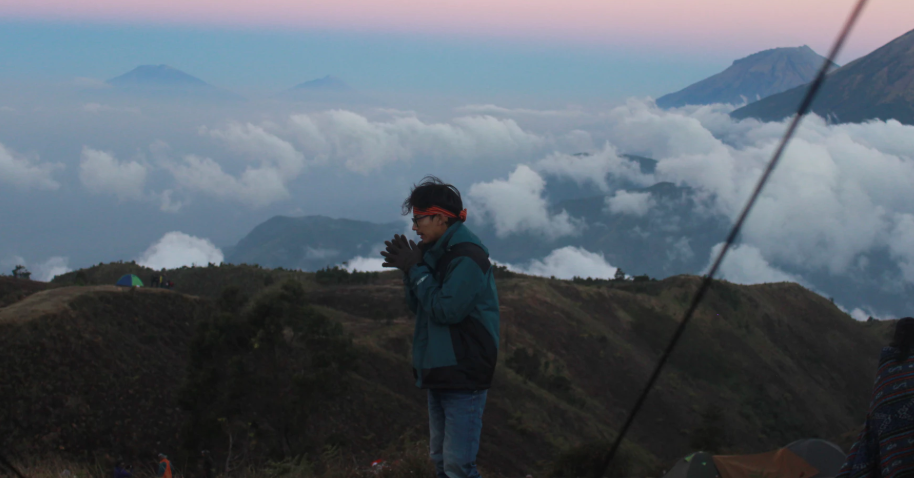Table of Contents
Your Guide To High Elevation Hiking
Hiking at high elevation affords you opportunities you may not get at sea level. Having to work to get up to those hard to reach places means that they are more untouched and mysterious. Getting to those amazing mountain peaks at higher elevations is more difficult for many reasons. Although it is a harder go, high elevation hiking can definitely be worth the effort.
High altitude affects everybody slightly different, but there are a few symptoms that are synonymous with altitude. Once you get up to where the air is thinner, your body will feel and react differently. It is important to know the effects of high elevation hiking and how to prepare for them.
Here are our best tips for how to adapt to, enure, and even enjoy high elevation hiking.
What to Expect at High Altitude
The reason elevation affects your body differently is because there is less oxygen the further you get away from sea level. When there is less oxygen in the air, it means your lungs, blood, muscles, and brain are getting less oxygen as well.
This can cause heavy breathing, quick fatigue, dehydration, headaches, dizziness, and many other symptoms. The higher you go, the less oxygen there is, so the effects can become more dramatic. Some symptoms are less severe and you just need to take a little rest.
If symptoms increase and you start to experience confusion, chest pains, fainting, and severely slurred speech, it is time to get to lower ground. As you descend, the symptoms will lessen, so it is important to know where to cut it off and head back down. There are many ways to prepare for the altitude and to treat it if you do feel some symptoms.
Talk To A Doctor
If you’ve never been to high altitudes before and you have some concerns about how it may affect you, it is always useful to see your doctor. Getting simple checks on your blood pressure, heart rate, and discussing any concerns you have can be a lifesaver.
High elevation causes stress on the body, and it is important to know that there are no underlying issues that could have much bigger implications on the mountain.
Acclimatize
The most important thing to remember before partaking in a high elevation hike is to give yourself enough time to acclimatize to the altitude before moving on or pushing yourself too hard. Altitude effects come into play when you are above 8,000ft or 2400m.
It is recommended that you spend at least three days at the base altitude of your hike before taking off on your journey to fully let your body get used to the effects of the altitude. Once you start getting into more extreme altitudes, you will need more and more time for your body to adjust to the new environment.
Travel With A Guide
If you’ve never hiked at high altitude, it is recommended to go with a guide. Guides hike at high elevation all the time and know exactly what to do when symptoms arise. They will generally have their own first aid and symptom alleviation techniques that they can help you with. Also, they will know for sure when it is time to turn around. Once you have been to higher elevation and you know how your body reacts to it, you will have enough experience to take it on yourself.
Stay Hydrated
With less oxygen in the air, you will be more likely to become dehydrated. You also burn calories quicker. To help alleviate some of the symptoms, be sure to drink lots of water – more than usual – and have enough sugary and carb-loaded hiking snacks to keep your blood sugar levels even.
Take it Slow
Almost as soon as you land in a city at high altitude, you will notice the effects. Even just standing in the airport or sitting in the taxi you may notice a slight resistance in your breath. This is normal. It is also normal to be a little out of breath just walking up a flight of stairs. In your first day or two at elevation don’t bother pushing too hard. You will have plenty of time for that on your hike.
However, don’t be afraid to get your heart rate up a little bit so you can start to understand how your body will feel doing moderate exercise. Your level of preparation will depend on the difficulty of your hike, but it is always good to know how your body feels before hitting the really high peaks and you’re away from emergency care.
Get in Shape
We aren’t talking about just being able to go for a 5 k walk on flat ground. You’re going to want to be able to get your heart rate up for a sustained distance and time. Altitude takes a toll on your muscles and lungs and you really don’t want to go into the hike without any type of physical fitness. You don’t need to be a marathon runner. But get to a point where you can walk up a steep grade for a few minutes comfortably and not be gasping for air.
Every extra degree of fitness you can add on will be extra beneficial. Also, don’t be afraid to get your glutes and calves into better shape. High elevation hikes tend to have a great degree of ascents and descents. Having your body used to these grades will make you enjoy the hike more instead of only enduring it.
Avoid The Booze
Alcohol dehydrates you. If you’re heading out on a grueling hike where you need your body to be in top condition, you will be doing yourself a favor by not adding to the dehydration factor. A beer or two doesn’t hurt, but don’t go out clubbing and expect to get up early and go hiking to 12,000 ft. You’re going to have a bad time.
Proper Medication
The most common elevation medication in North America is Diamox. It can be helpful to have it on you if you are really sensitive to the elements. In other cases, you can drink cocoa tea, eat sugary and carb loaded snacks, and have aspirin and ibuprofen with you.
Cocoa tea is popular in Peru where Macchu Picchu is and is used by locals and tourists all the time in order to give a boost in energy and stave off the effects of the altitude. Many regions will have their own remedies dating back thousands of years that can help you out as well.
Also, remember strong sun lotion with a high SPF rating. the sum beams down hard the higher you go and burns your skin very quickly at times.
Have Fun
High elevation hiking is a limit-testing endeavor that will take your breath away. Along with all the precautionary tips we have discussed one of the things you definitely shouldn’t forget is to enjoy it. For most people, the symptoms will be very moderate as long as you prepare for it.
You will be up above the clouds, watching waterfalls from where they begin, seeing million-year-old glaciers, and hanging around with alpacas. Be sure to bring a camera with lots of batteries, and remember to take in these once in a lifetime experiences.
If you liked the article, please leave your feedback.







